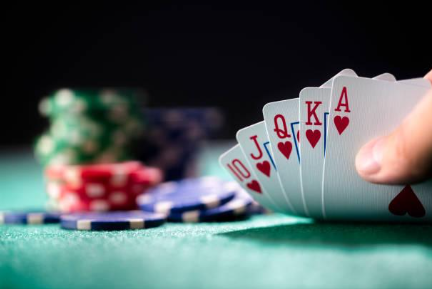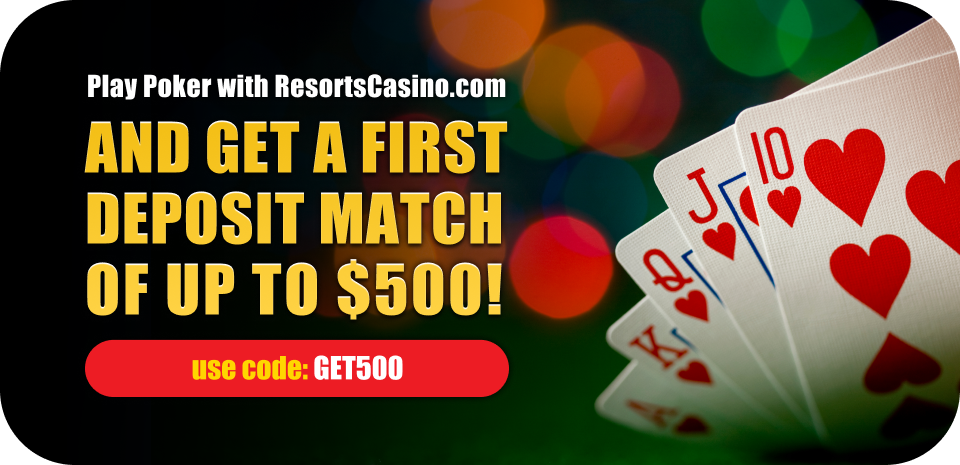The Poker Player’s Mind Game
In a game such as poker, one of the hardest things to achieve is the right mindset. Players need to be ready for victory but also able to protect themselves from the negative feelings that loss and adversity can produce. Having this attitude is all about seeing the game from a philosophical perspective – a run of bad results does not mean failure. For some, this part of the mindset is about trusting the process – that is, their skills as a player, their understanding of math, and their ability to strategize.
However, the true mark of an exceptional player is their capacity for observation. Perception is a key part of poker psychology. It means gathering information on as many aspects of the game as possible. The better a player is at this, the more informed their decisions are during each hand and ultimately, the game itself.
The Psychology of Bluffing
Although there are many different factors at play for each bluff that’s attempted, the success or otherwise of bluffing will ultimately hinge on the player it’s focused on. If the other player realizes what’s going on, and already has a few wins under their belt and a great hand to boot, then no bluff is going to have an impact. At the same time, it’s a myth that only less experienced players are susceptible to the influence of a good bluffer. A good bluff can work on a player of any experience level – no one is infallible.
Doing well with a particular bluff is often down to taking a tactical approach. Before getting started with a potential bluff, players need to think about the position that they and their target are in. Players who are last to act have the opportunity to learn more about their opponents, and this can prove very valuable. The stack can also impact how everyone plays their hand, because if one player has a $50 stack, that’s all they can win from another player – regardless of how much everyone else has in their stack. Therefore, a crucial aspect of bluffing, in terms of when to do it and who to aim it at, is down to poker psychology.
Whether an opponent is in a less advantageous position, or they’ve been affected by a difficult loss, it can lead to them being more vulnerable. As a result, it could be a good time to act. However, one of the best poker psychology tips is to remember that the same goes for everyone around the table, even the person planning a bluff. Feeling awkward about the game, or uncomfortable, can lead to a series of passive card moves that can put a target on a player’s head. Skilled, perceptive opponents will be far more likely to send out a few bluffs to try to destabilize the other player – it’s all part of mastering the art of bluffing in poker.
Strategic Thinking: Calculated Moves and Poker Player Mindsets
A poker strategy refers to the choices that a player makes during a game and the actions they take as a result. It’s a plan they undertake with the end goal of making the most profit from each hand. The characteristics of an individual player’s strategy are likely to be influenced by the element of chance that everyone around the table has to deal with, as well as the fact that they can never have all the information they need to make a perfect decision. As a result, poker psychology involves using a range of strategies, sometimes within the same game, as well as various deceptions, such as the poker face and a consideration of probabilities.
Calculated moves will encompass various factors, though they will almost always include the position that a player is occupying at the table, the number of other people in the game, the pot size, the stack size, and the various playing styles being used. Many people use the idea of risk versus reward to calculate the odds of winning. For example, they may try to establish how likely it is that the card they need to improve their hand will be drawn. Players will weigh these odds to think about whether a call is the most profitable course of action, or simply adjust their bet to make the call unprofitable for their opponents.
Sticking to a strategic course has various benefits. One of the most beneficial is that players can avoid the ever-present threat of tilt. In many cases, when someone is not playing to their full potential, it’s because they have become emotional about the game and are, in the vernacular, on a tilt. This can lead to a stream of losses. Strategizing helps players to make decisions that are not based on anger. Also, an awareness of tilt taking hold can help players avoid its pitfalls. The only way out, in reality, is through the door, because getting away from the table makes it easier to gain perspective and clear the mind.
Reading Opponents: The Art of Psychological Profiling
There are many different types of poker players. Anyone who is looking to develop some sort of long-term success in this game will have to learn how to read as many of them as possible. Not every player can be put into a neat category. However, by trying to build a profile for each opponent, it can be easier to read them.
It starts with the basics of how people dress, speak, move through the room, and present themselves. Everything they do can give away something about their personality. Players who tend to be aggressive at the table will often reveal this by speaking in a loud voice, trying to dominate the conversation, and wearing bright clothes. In play, this could translate as buying in for needlessly large amounts. This kind of player wants to be in the spotlight, and as a result, they are easy to identify and often even easier to bluff for experienced players. Those with less experience may find themselves on a tilt after a few hands with an aggressive player. Passive players are the opposite of this and will always turn away from conflict. This can become an issue in poker, where the objective is to try to take money from the other players.
The other two binary types of players are those who display loose and tight characteristics. Tight players are neat, reserved and don’t have much to say. They may be consistently uptight on the outside, but as they reveal very little of themselves at any point, the true nature of their hand is difficult to visualize. Loose players have a completely different table image that makes them appear impulsive and lacking in patience. They often make a habit of trying to engage everybody in conversation and keep their chips in a messy pile. Again, it’s tempting to view this type of player as an open book, but in reality, their entire countenance could be a façade. As a result, they need to be watched closely for any signs of a change in their appearance.
Players who can get a read on the other people at their table can use this knowledge to enhance their game. Managing tilt when it comes to aggression, being aggressive to a passive player, and bluffing less toward the loose players are all part of refining a strategy. It’s simply a case of looking carefully for weaknesses in others, and then acting to exploit these whenever the chance presents itself.
The ability to psychologically profile others moves a player from only thinking about their own cards to considering what their opponents are holding. However, the final stage is to reflect on what the other players could be thinking. To do this well, players should start by making accurate reads and learning how to catch someone bluffing in poker. When playing online poker, the psychological profiling of other players takes on a different dimension, and is often informed by how frequently live chats are used, what’s being shared, etc.
Emotional Control: Navigating the Rollercoaster of Poker
A poker face is widely considered to be an expression that conceals a person’s real feelings and thoughts. The idea is that it will be impossible for the other players to tell whether they have a great hand or they’re hoping for their opponents to fold because they have a terrible hand. However, for some of the more experienced poker players, a face with no expression is not always the best method of concealing emotions. A player could be looking sheepish or confident, for example – as long as they are not showing any indication of what is happening with their hand, they’re doing a great job. The ability to do this consistently means that a poker player is practically unreadable to everyone else at the table, and refining this skill is part of becoming better at the game.
Besides getting the expressions right, players need to understand how their own feelings influence the way that they play, for better or worse. They must also have a good level of comprehension when it comes to reading their opponents’ thoughts. Once they have this ability, players might have a better chance of reading their opponents’ cards, without even seeing them. However, other players will come and go, so focusing inward is always a good starting point.
Rather than blaming others for mistakes and oversights, successful players will be more ready to consider what really went wrong – and it’s rarely bad luck. Everyone in the game will be struggling to control their ego, because no one likes losing, especially when it means losing cash as well as face. By the same token, it is important to have a degree of confidence. Poker can be brutal, especially after a run of losses. Finding the right balance involves acknowledging when things have gone wrong and being honest about it. Taking the blame for a loss can be tough, but ultimately it builds self-awareness.
The Mindset of a Champion: Stories of Legendary Poker Players
It takes a lot of skill and ability to beat the odds, but some players have enjoyed great success with poker over the years. Here’s a look at four of them.
After practicing his poker skills in the billiard halls of Oklahoma as a teenager, Bobby Baldwin studied business at the state university. While there, a roommate helped him to perfect his game. In 1978, at the tender age of 28, he won his first World Series of Poker Main Event and netted $210,000. After many more successes at the table, he moved into casino management and was inducted into the Poker Hall of Fame in 2003.
British player Chris Moorman is one of the world’s most successful poker players, having racked up $14m in winnings. Moorman was a brilliant math student who went on to study economics and had his first win at university. Numerous successes in large tournaments followed, including third place at the 2011 World Series of Poker and first place at the 2014 LA Poker Classic, which earned him $1m. He’s still a very active player who believes that those who bring no ego to the table tend to be the victors.
Canadian Kara Scott was a sportscaster in the 2000s, though she had always had a passion for poker. Netting $663,000 from her winnings, she enjoyed success at the 2009 Irish Poker Open, the 2008 World Series of Poker and the 2009 World Series Main Event. She continues to play regularly, but also works as a presenter and commentates on poker from time to time.
Hailing from Stockholm, Martin Jacobson was a chef in his previous career and began playing poker online while perfecting his culinary talents. By 2008, the global successes were stacking up, and this culminated in his landing third place in the European Poker Tour and winning a cool €296,000. In the following years, he made many notable final table appearances, including winning a World Series of Poker Main Event gold bracelet and a $10m payout in 2014. He claims to have spent 500 hours preparing for the event.
Mastering the Mind Game of Poker
Although understanding the psychology of poker won’t make up for a lack of experience and solid poker math, it can certainly enrich a player’s game. Using these different elements together allows players to develop a technique that’s difficult to overcome. So, for the best chance of success, players should study both worlds, mastering the human side of poker and gaining a deep understanding of the odds.




